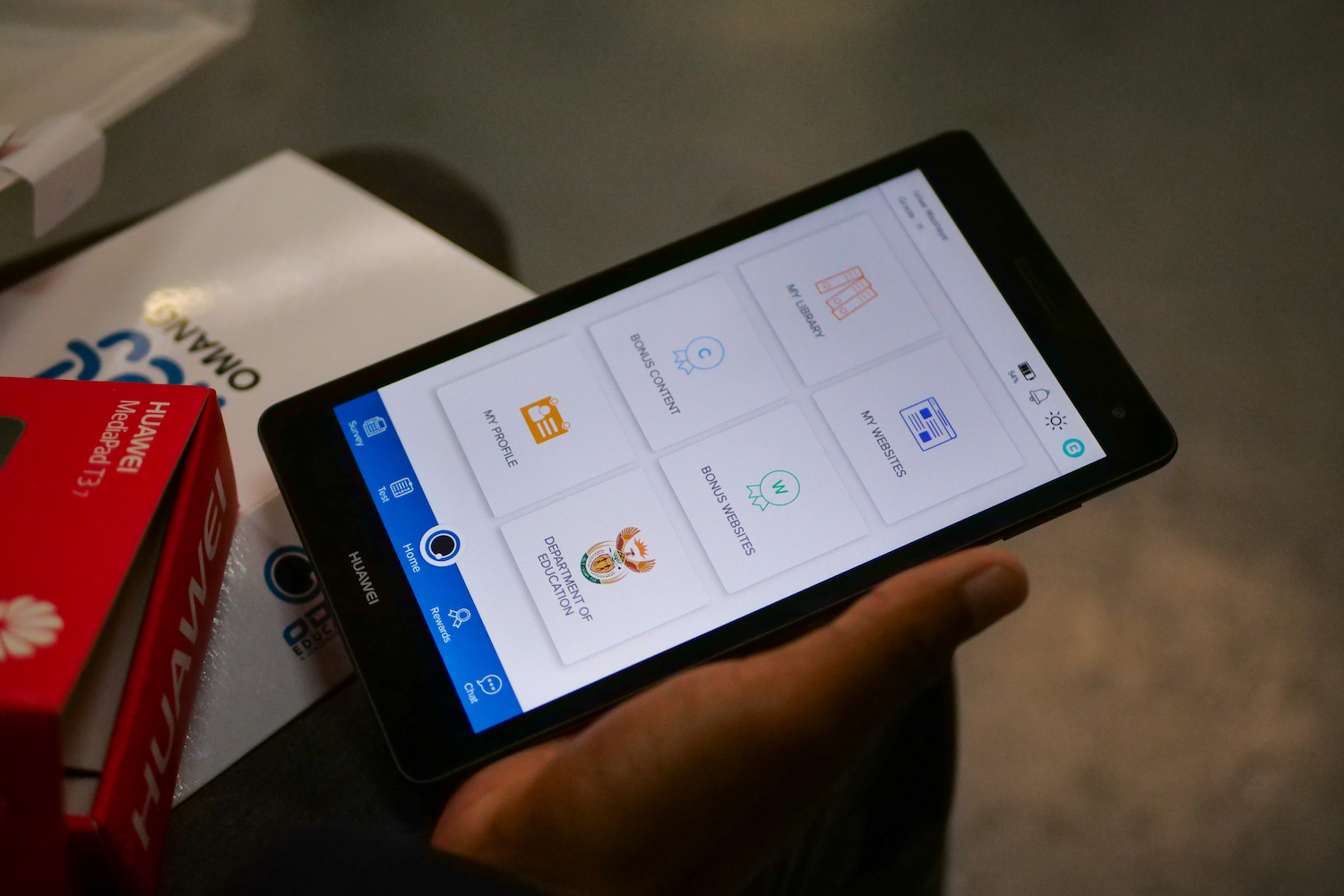Product of the Day
SA tech company ramps up access to affordable remote learning
A new education technology solution by Jendamark Automation attempts to save the academic year by providing affordable remote learning tech to underprivileged schools.
A South African tech company is reducing barriers to online learning with an e-learning tablet device that provides affordable access to curriculum-specific educational material for schools anywhere in the country. This may help accelerate government’s goal of making e-learning accessible to every learner.
The e-learning solution is a boon for rural and under-resourced schools in particular, and was developed by Jendamark Automation as part of its Odin Education software ecosystem.
Roll-out of the devices began at the end of June, with over 600 Android educational tablets purchased for deployment across rural Free State schools, and 75 to Grade 12 learners from various Nelson Mandela Bay schools who are enrolled in the Unity in Africa Foundation’s ‘Incubating Great Engineering Minds’ (iGEMS) after-school programme.
To mark Mandela Month, Jendamark donated a further 114 devices to Grade 11 pupils at Nqweba Secondary School in Graaff-Reinet.
The tablet, known as Omang – meaning ‘identity’ in Sesotho – is loaded with content drawn from the country’s major educational publishers, with free data supplied by leading network providers. Content is specific to each school’s curriculum requirements – including its chosen textbooks per grade, approved educational websites, and any e-learning platforms or apps it may already be using.
“This is not just about textbooks on tablets,” says Jendamark group managing director Quinton Uren. “This is about bringing costs down through collaboration to create a truly affordable ed-tech solution for every South African school, with no hidden costs. We want every child to have access to a world of knowledge wherever they are – at home, in the classroom, on a taxi, anywhere and anytime.”
Each device is personalised according to the individual learner’s registered subject choices, with bonus website content added based on their interests and most-viewed topics online. In addition, teachers can upload their own content, including video lessons, old exam papers and notes, as well as allowing them to set multiple-choice tests and answer any questions via safe class chat forums.
“Omang is making a huge difference to learners and teachers, and we’re already seeing an increase in results, especially in our maths grade average,” says Sehloho Moletsane, headmaster of Mohaladitwe Secondary School in QwaQwa. “This is a generation of children used to being on their phones, so they’re almost playing while learning. We’re excited by how learners are engaging with the device and have a greater sense of responsibility for their learning.”
“No matter where learners sit, they can still study,” says Putsoe Modukanele, headmaster of Olien Secondary School in Fauresmith. “Being in the rural Free State means that we’re often behind the times. With the Omang device, we can keep up with the times and teach beyond the classroom.”
The coronavirus highlighted the immediate need to ramp up digital education for remote learning, says head of Odin Education, Ajit Gopalakrishnan: “In this digital world, there is no shortage of quality educational content, but access to that content and to devices like phones or tablets is a real obstacle for many South African children. We know data is also an issue, so our devices are pre-loaded with a set amount per learner, which can be managed as the school chooses.
“Many parents have concerns about what their children may be viewing online and who they are talking to, but the Omang device can only be used for educational purposes, with safe, approved websites, and teacher-led chats.”
Gopalakrishnan said the device would be locked if stolen or lost, rendering it valueless to would-be thieves.
Grade 12 learner Xhanti Qandana said: “We are excited. This is huge for us, as we come from very underprivileged homes. This device will enable us to function better, as everything we need is at our disposal. It’s like having a second teacher.”
The pre-loaded devices can be purchased by schools or provincial education departments at a monthly cost of R134 per learner, including 2GB of data and full tech support.
For more information, visit www.odineducation.co.za


















